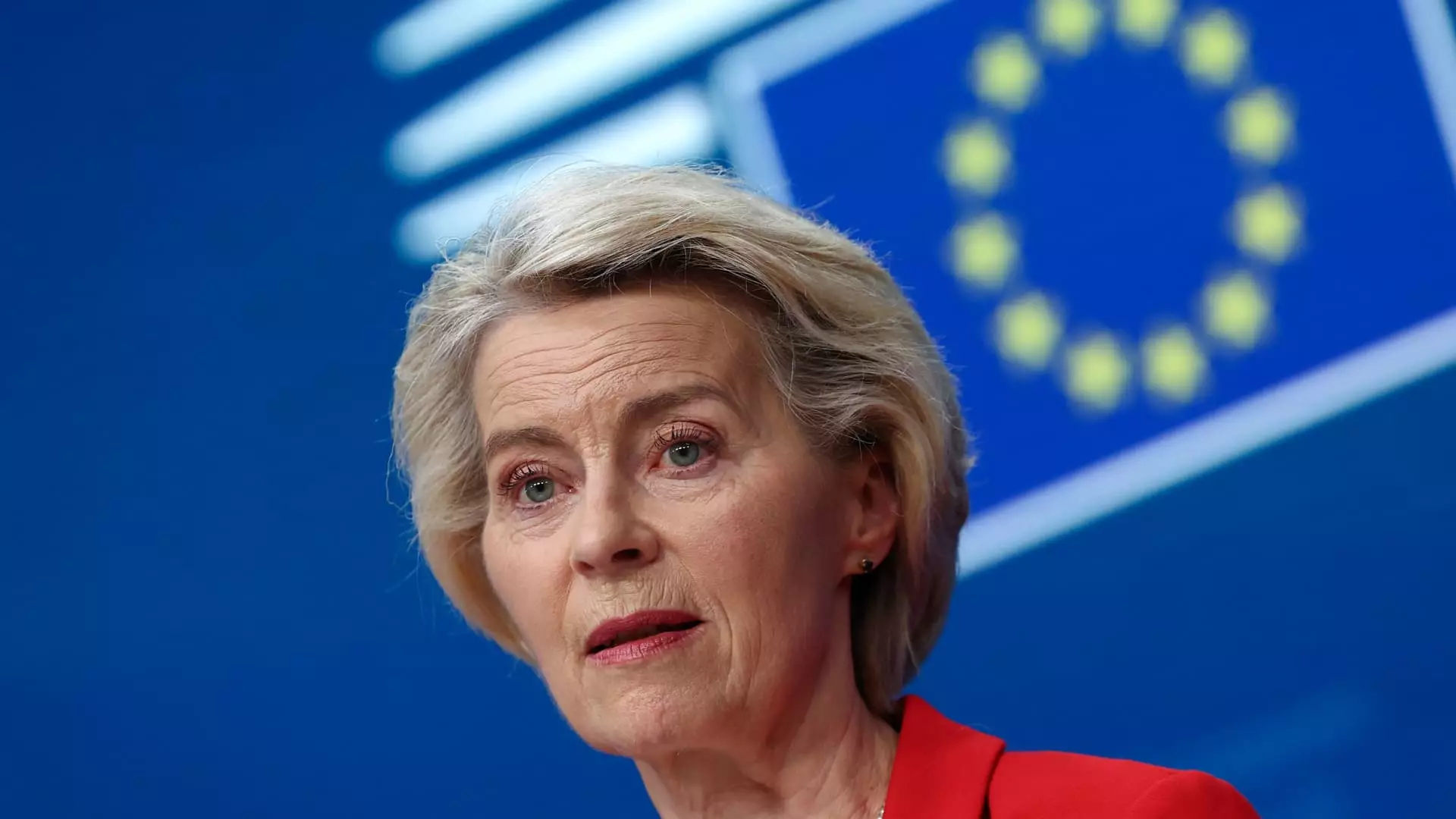In an era marked by geopolitical unpredictability, the European Union’s decision to suspend retaliatory tariffs on U.S. goods signifies a critical, yet temporary, pause in what could escalate into a devastating trade war. While this move appears to be a strategic attempt at diplomacy, underlying tensions reveal a fragile foundation that risks destabilizing not only the transatlantic alliance but also the broader global economy. It is abundantly clear that the EU’s willingness to delay countermeasures is motivated less by optimism and more by pragmatic necessity, exposing the uncomfortable truth: trust between these economic giants is fraying.
The EU, which commands the world’s largest trade bloc, is essentially treading water in turbulent waters. Its exports—ranging from pharmaceuticals to automobiles—are vital engines for economic growth, but are now vulnerable to the whims of political confrontation. Brussels’ decision to hold back retaliatory tariffs signals a desire for negotiation; yet, without genuine resolution, this standoff could easily reignite, leaving both sides worse off. What this reveals is a system teetering on the edge of escalation—where diplomatic gestures serve as brief respites rather than steps toward sustainable cooperation.
The Power Dynamics and Political Calculations
From the outset, U.S. President Donald Trump’s tariff policies were rooted in a fundamental belief that America’s economic security was undermined by unfair trade practices, often cited as a justification for aggressive measures. His administration’s approach, characterized by a combination of economic nationalism and threats of tariffs, has created an atmosphere of perpetual uncertainty. The Trump doctrine, which positions tariffs as tools for national security, has fundamentally reshaped the rules of international trade, challenging the notion that diplomacy and dialogue are sufficient to resolve complex economic disagreements.
European leaders, meanwhile, are navigating a delicate balancing act. Italian Foreign Minister Antonio Tajani’s trip to Washington underscores the continent’s desire to assert influence, yet also highlights how fragmented responses to these tensions are. The EU’s internal divisions reflect a broader challenge: reconciling economic interests with diplomatic integrity. While some EU states may be tempted to adopt a hardline stance, the risk of retaliatory spirals undermines the collective bargaining power of the bloc. The European Union’s emphasis on negotiation reveals an underlying hope—perhaps naive—that diplomacy can steer these troubled waters toward calmer seas, even as the specter of tariffs looms large.
The Broader Implications for Global Stability and Economic Prosperity
The stakes extend beyond mere trade numbers. These tariffs are emblematic of a broader shift towards protectionism, threatening the principles of a free and open global economy. With a staggering €1.7 trillion worth of trade between the EU and the U.S. in 2024, even minor disruptions have outsized consequences. The interconnectedness of supply chains and markets means that the repercussions will ripple through industries worldwide, from French winemakers to German automakers—each dependent on predictable trade policies.
This ongoing saga underscores a systemic vulnerability: the reliance on political will rather than institutional stability. Either side could one day decide that tariffs, threats, or delays serve their political narratives better than sustained cooperation. Even more concerning is the potential for such conflicts to spiral into larger geopolitical confrontations, fracturing longstanding alliances and shaking the foundations of multilateralism.
In essence, the eurozone’s and America’s economic futures are entwined in a delicate dance of diplomacy and power. The temporary suspension of tariffs is merely a pause—an opportunity for reflection or, regrettably, a prelude to further discord. If global leadership fails to prioritize genuine compromise over tit-for-tat brinkmanship, it risks plunging the international community into a cycle of mutual damage that no one, ultimately, can afford.


Leave a Reply